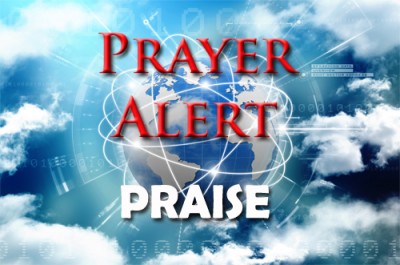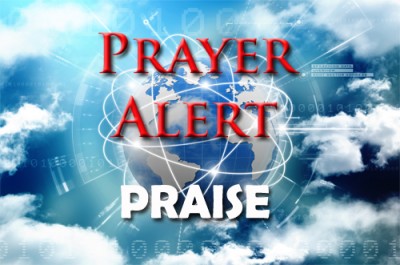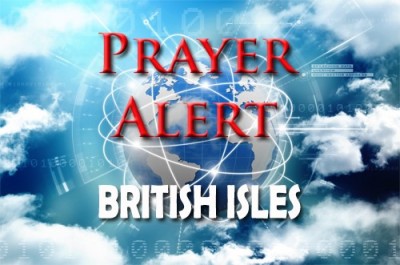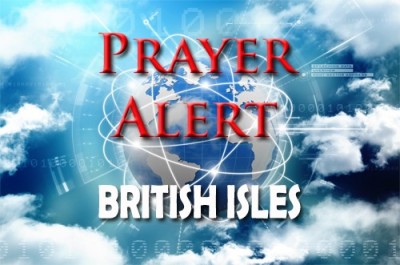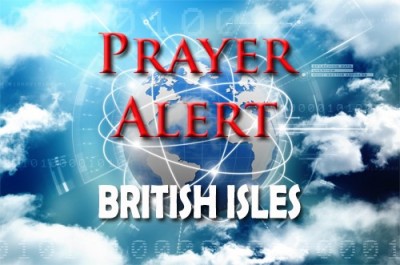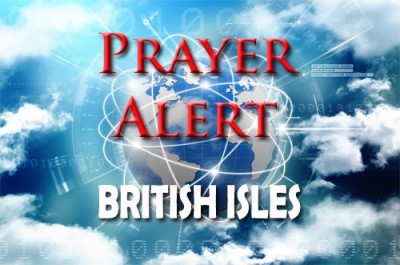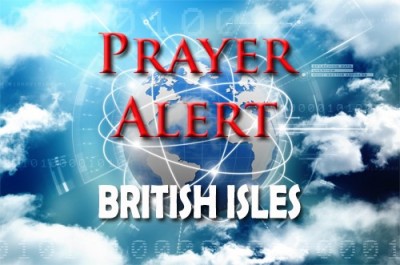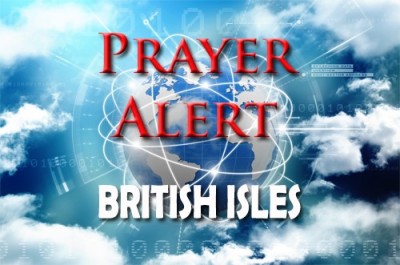God still heals supernaturally
25 Jul 2019Oakland Raiders quarterback Derek Carr told a congregation, ‘I saw the lame walking and people healed at a conference in California. We prayed for healing, and people were healed all over the place. We saw one man's hand open for the first time in five years. Another man, in a wheelchair, began to stand up and dance while they were playing their music.’ He told them that he was describing these miracles so that they would have opportunities to ‘get a word deep within you, that you would be so filled up with the awareness of the Holy Spirit that when people look at you, they say, “That is amazing. I must go see what that is”. You see, you don't need a twelve-step programme. All you need is one moment in God's presence. I believe that can change your life.’
Apulstock Festival: 20 July
25 Jul 2019Apulstock is a safe music festival in Sussex, for people with special needs. It is organised and run by volunteers whose sole aim is to inspire and entertain people who don’t have the opportunities or support to attend the larger annual music festivals. Apulstock is a mixture of music and dance slots led by professional rap, rock and roll, and alternative musicians plus lots of fun bands encouraging audience participation in Zumba fitness and funky dance routines. Every week, across the country, there is an army of volunteers using their talents to touch the lives of the hidden 2% in our communities. They deliver special church services, discos, karaoke, sports, arts and crafts, gardening, etc to develop people’s individual strengths and support them to overcome their weaknesses.
Intercessor Focus: new leader
25 Jul 2019Lord, you moved the heart of Cyrus, even though he did not know you, to do your will for the sake of the nation (2 Chron. 36:22). You changed Saul’s heart and used him to fulfil your purposes (Acts 9:4). The UK has a new prime minister. We pray that you will enable Boris Johnson to stride into your Kingdom purposes with every decision he makes. We ask You, Father, to use his strong intellect to take us on the Brexit journey and also to inject your purposes into education, the NHS, social services, police, military, commerce and industry; bringing them back onto the paths of mercy and moral laws. Father please open his mind to Your strategies for the coming months. May he lead this nation into restoration and renewal. Surround him with wise advisers who have Your vision and anointing to meet the needs of society through Brexit transitions to achieve a ‘breakthrough’ in the Irish border blockage.
New cabinet
25 Jul 2019Praying for Christians in the media
25 Jul 2019In difficult economic and social times, we need strong and courageous international, national and local media, working to the highest ethical standards. To this end, the vision of Christians in the media is to see the media flourish as they become key influencers. Please pray for more churches to engage positively with the media, and for the life-affirming Gospel message of faith, hope and love to be reflected more and more in the UK’s national newspapers, community radios, websites, TV networks and blogs. Pray for more Christian researchers, writers and editors to step into key roles of international and national networks. May there be thriving media with Kingdom values woven into programming schedules. Ask God to give spiritual and moral strength to those striving for integrity and truth. Pray also for journalists around the world facing death and imprisonment for speaking the truth.
Children excluded for opposing LGBT lessons
25 Jul 2019Ten-year-old Kasey, a Pentecostal Christian, is speaking out against the growing LGBT agenda in her classroom. As parents nationally protest against LGBT school lessons, the Christian Legal Centre is supporting courageous Kasey and her mother, who are taking a stand against a school seeking to eradicate any opposition to its LGBT agenda. Kasey and her Catholic friend, Farrell, were explaining in the lesson how gay people would be 'punished' for their sexuality in some countries, but their point was misunderstood and the school suspended them for five days for being homophobic. Kasey said, 'I only learned what homophobic means the other day. I'm not homophobic, I'm just against the school traching LGBT topics to children.' Kasey's mother said, 'The school is failing to recognise our Christian beliefs and is persecuting us for wanting to maintain our Bible principles.' The Christian Legal Centre said the situation reflects the sexual agenda imposed on innocent children.
Iran’s piracy and British ships
25 Jul 2019Currently events in the gulf are operating just below the threshold of all-out war between Iran and the UK/USA over the Straits of Hormuz. On 24 July Al-Jazeera reported that President Rouhani has suggested that, if the United Kingdom releases its tanker seized off the coast of Gibraltar earlier this month, his country will return a British-flagged vessel it apprehended last week. Rouhani made the purported offer during a weekly cabinet meeting, assuring an ‘appropriate response from Iran’ if the UK stepped away from the ‘wrong actions in Gibraltar’. Boris Johnson will immediately have to deal with the crisis over Iran and the deployment of a European-led maritime protection mission which the previous Foreign Secretary Jeremy Hunt announced on 22 July. Six tankers have been sabotaged in six weeks: see
Universal Credit benefits
25 Jul 2019Since its introduction, Universal Credit (UC) has made things harder for people receiving it. Now, a court ruling has made it possible for 13,000+ disabled people to receive backdated benefit payments. People who moved from the severe disability benefit to UC, which rolls six payments into one, will receive backdated payments of up to £405 per month alongside the UC benefit. The work and pensions secretary said that claimants who had been entitled to the severe disability premium would be given ‘ongoing transitional payments’ as they moved across to UC, and those who had already moved to the new system would be eligible for backdated payments. While we can thank God for this change, we can continue praying for other support packages which need re-assessing and addressing, including dementia care and undiagnosable illnesses that do not fit into any recognised medical category but still need support with training, transport, supervision, and personal care.
